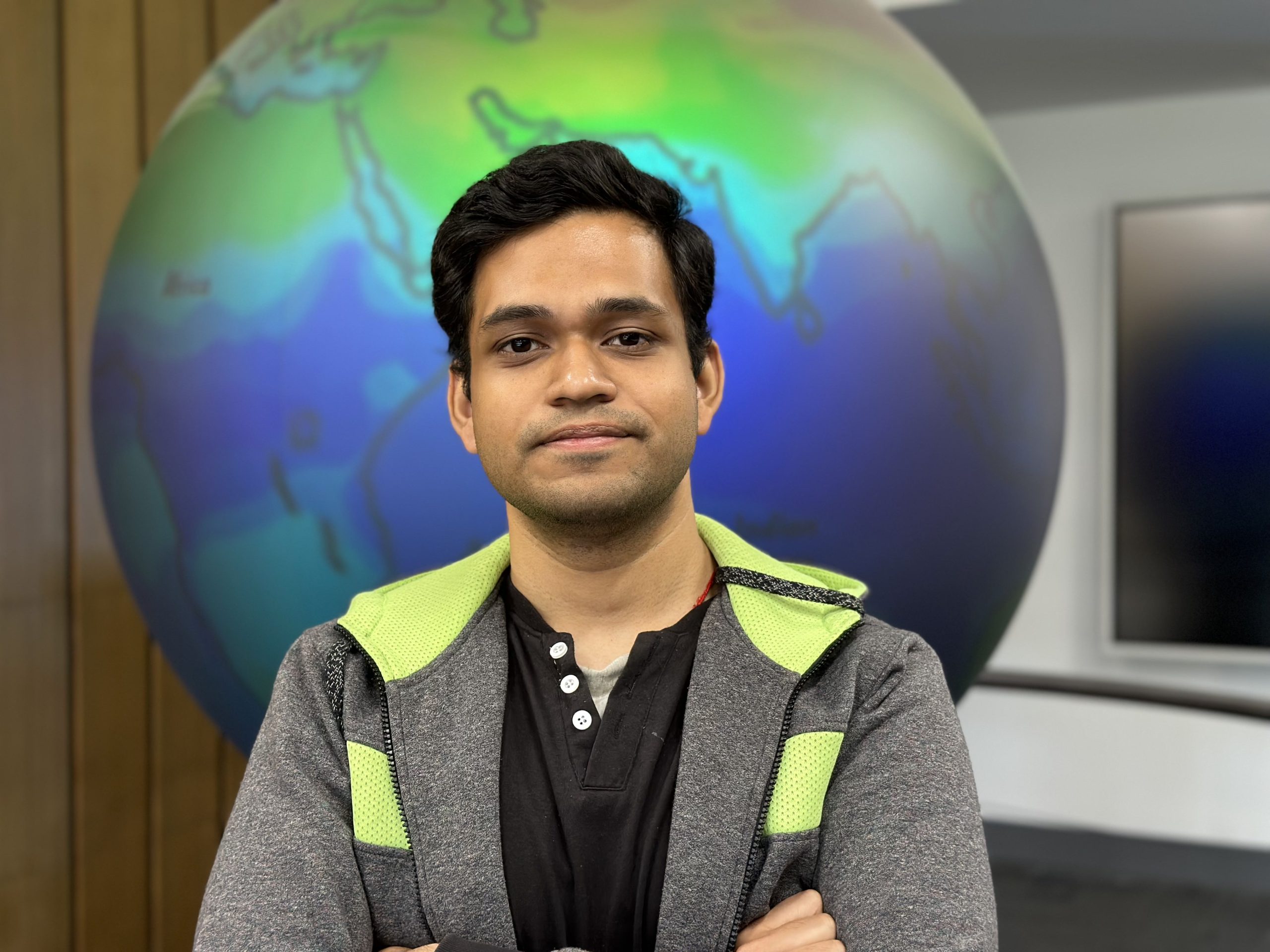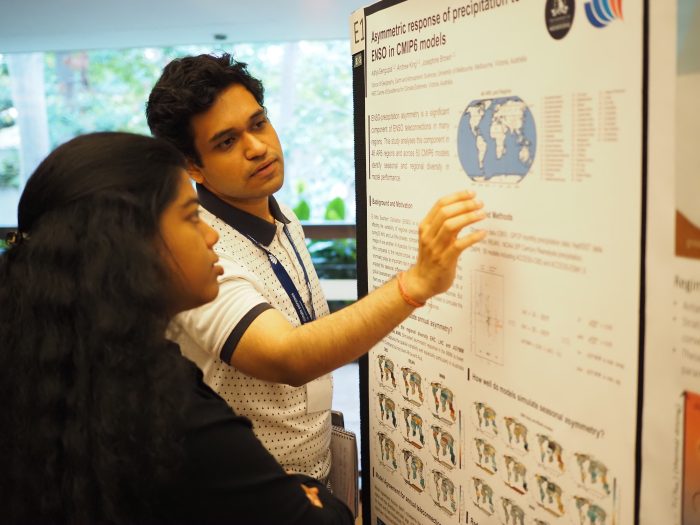
Aditya Sengupta is a PhD researcher at the ARC Centre of Excellence for Climate Extremes studying the impacts of climate change on El Niño. After studying physics in India, and driven by the desire to make a change, Aditya decided to shift to climate science.
Aditya grew up in Delhi, India. His passion for science started at a young age, when on his 6th birthday, his family gave him an astronomy book.
“It was a very big book. I didn’t understand half of the things in that book, but I really liked the pictures. I got very interested.”
Over time, Aditya’s passion for astronomy deepened. As a teenager, stargazing became his hobby and physics his favourite subject at school.
“I was a bit of a nerd in high school. Science and physics caught my attention the most. I could see myself becoming an astrophysicist, so I decided to pursue a degree in physics at university.”
Aditya completed a bachelor’s degree in physics from Amity University in India. Reflecting on this period of his life, Aditya says, “These were three fruitful years. It was the time I developed the most as a person, and I also acquired great research skills during that period.”
“But I also realised I didn’t want to continue in physics. I wanted to focus on more applied areas and have a direct impact.”
Driven by this desire, Aditya shifted from physics to climate science and pursued a master’s degree in that field at the National Institute of Technology in eastern India.
“I dived into climate science without knowing much about it. But I knew climate change was one of the most pressing issues of our century, impacting ecosystems and all aspects of society.”
“I felt I would have a larger impact as a climate researcher than in any type of physics.”
Besides his studies, Aditya also joined the movement Friday for Futures, an environmental movement where students hold strikes on Friday to demand action from political leaders to address climate change and reduce carbon emissions.
Aditya says studying climate science broadened his horizon and offered opportunities for new discoveries. Thanks to his excellent research findings, he had two papers published based on his master’s thesis.
“When you’re doing research, there’s a tree of knowledge and there are fruits on it. Most of the low hanging fruits in physics are already gone, so if you want to do something new you have to work really hard to find that gap.”
“Whereas in climate science, there’s still so much to do and discover because it’s an interdisciplinary subject.”

Besides making new discoveries, what Aditya liked most about climate science were the networking opportunities it provided.
“It was a perfect subject for a person like me who loves working on different topics and with different types of people. Climate science is immensely diverse, there are people working in climate economics, climate communication and climate policy to name just a few. Interacting with this community motivates me a lot.”
After completing his master’s degree, Aditya received a scholarship to pursue a PhD at the University of Melbourne, where he is currently studying the impacts of climate change on El Niño, particularly how El Niño will change after we reach net-zero emissions.
Looking ahead, Aditya plans on staying in academia and would like to explore the effects of climate change on economics or population exposure.
He also hopes climate science will gain traction as a field of study in the coming years.
“People who are younger than me or who have just started university are increasingly excited about it and that’s a really positive sign for the future. It shows that young students are eager to learn something different, something unique.“
“They know that their generation and the younger ones are going to be impacted the most. They’re trying to find ways in which they can contribute and make a change.”
